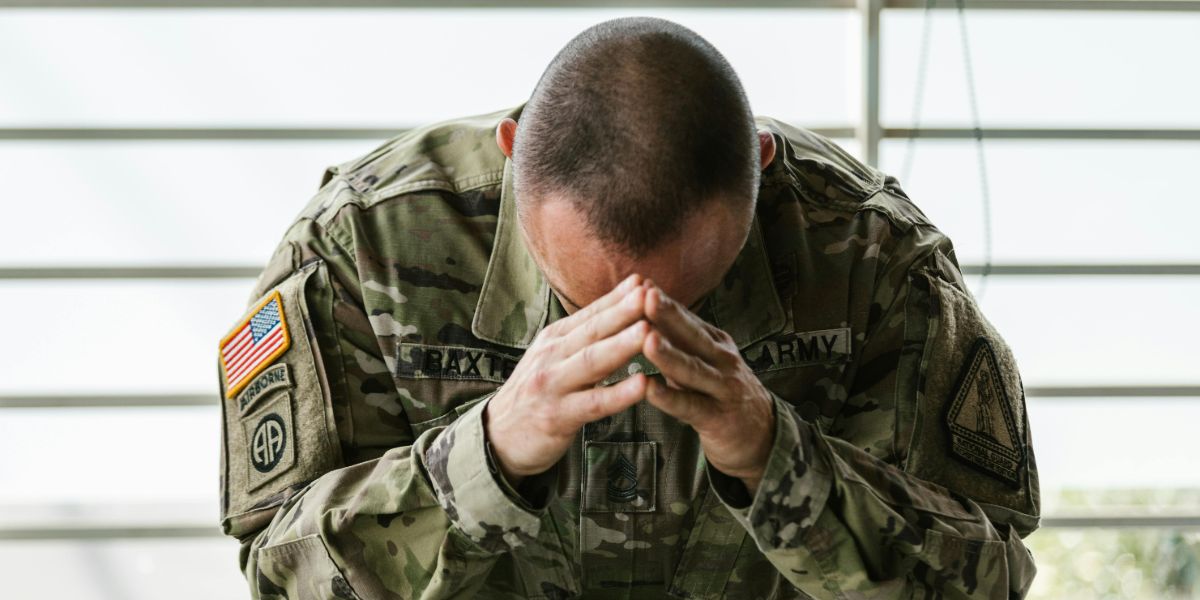You can’t do it alone. Remember that. When you’re starting an outpatient program, you’ll need support to make it through the rough times and avoid relapse. Support groups and sober living programs are a must for your outpatient recovery program and without them, you don’t stand a chance of staying sober over the long-term, eventually you’ll cave in to the relentless pressure your mind places on you to return to your old behavior patterns.
The reality is your success in outpatient recovery relies on support from others. Your addiction is a chronic disease, and that means that it’s with you for the rest of your life. So don’t assume that because you’ve successfully completed an inpatient detox and therapy program, you don’t need any support when you return to your life.
Your addiction will test you. That’s a guarantee. And if you want to successfully overcome the little voice in the back of your mind telling you to use, you’ll need to turn to support from your sober community when you feel weak and vulnerable.
Building a support network around you during your outpatient recovery fortifies your continual commitment to sober living. So, who can you ask to be part of your support network? Your friends and family who are supportive of your quest to remain sober will likely gladly be there for you when you need to talk.
Some people don’t have the luxury of friends and family who are willing to support them. You might have burned bridges with the people you care about during the height of your addiction, or you might be living far away from family and friends. You might find it hard to meet new people, and it might make you feel discouraged or afraid that it’s only a matter of time until you relapse and get back to your addiction.
Fortunately, you’ll receive ongoing counseling and support from the Carrara therapy team during your transition to and during your outpatient program. You also have a bevy of options for sober online community support groups and in-person meetings.
Your outpatient treatment is a time for you to expand your horizons and meet new people who form your support group. These people are going through outpatient programs, just like you. The group leans on each other in tough times and your relationship with the people in your group strengthens over time as you get to know one another.
You’ll start to feel optimistic and hopeful about living a sober life as you share and build trust with these people who add value to your new sober lifestyle.
The Role of Social Groups in SUD and AUD Outpatient Recovery Programs
Many people develop addictions on the party scene and in social groups. A few drinks with friends and the occasional line makes them feel like they can let their hair down and be themselves. Alcohol and drugs take away the inhibitions that make you feel socially awkward, and you might cringe at the thought of trying to meet new people when you’re sober.
You might experience waves of anxiety just at the thought of meeting new people and fear social interactions. So, you might shy away from making an effort to build that vital support network you need in your outpatient recovery from SUD or AUD. You’ll need to push yourself past your comfort zone and its limitations on your ability to be social and network with other people during your outpatient program.
Finding the Right People for Your Support Group
Positive peer pressure and social support make all the difference in recovery. When you have someone you can open up to and talk about the thoughts of relapse rampaging through your mind, you’re more likely to stay on the sober path. But when you’re starting your outpatient recovery journey you might not know who you can turn to for support.
That’s okay, don’t stress. We’ll give you a roadmap to build your support community.
Start by writing out a list of the desirable traits you want in the people in your support community. While everyone has a different personality, everyone in your support group should have a vested interest in seeing you stay sober. Avoid adding people to your community who could trigger your addiction and force you to relapse.
The members of your support community must have the gumption to hold you accountable for your actions and be honest with you when they feel you’re straying from the sober path. While friends and family would seem like they’re the best candidates for your support network, that may or may not be the case, so let’s look into that for a minute.
Can You Rely on Your Family Members for Support in Recovery?
Who knows you better than your family, right? Over the years they probably sat on the sidelines worrying about you as they watched your addiction capture your mind and soul, hoping that you’d turn things around for yourself. So, when you tell them you’re sober and want to stay that way, they’ll be overjoyed at your decision and do everything they can to help you stay that way.
Unfortunately, that’s not always the case, and you may have cut family ties, or your family may have disowned or given up on you because of the pain you caused them when you were addicted to alcohol or drugs. Or someone in your family might be dealing with an addiction themselves and be a trigger for your addictive behavior. If you can’t turn to your family for support, the good news is you have other options.
Meet New People in a Sober Living Facility or at Recovery Meetings
Your time with us at Carrara eventually comes to a close when you’re ready to get back to life. Your aftercare outpatient recovery program involves engaging with support groups where you’ll attend recovery meetings and meet other people who are also on the road to living a sober life.
There are dozens of addiction support groups that meet across all cities and towns in Southern California, in person or online. You’re sure to find one that meets your needs and adds value to your recovery. All you have to do is spend some time searching online to find local support groups near you and look at their meeting schedule.
There’s a support group for anyone, it’s a dynamic industry catering to people from all backgrounds and cultures. For instance, you might not find too much value in a conventional 12 step program at NA or AA or resent its Christian religious focus. If that’s the case, you could try attending a SMART Recovery meeting that takes a more spiritual approach to handling support and recovery.
The thought of going home might terrify you if you live by yourself. Loneliness is one of the biggest factors influencing relapse and many addicts don’t trust themselves when they’re ace-out with no one around.
If that sounds like you, think about moving into a sober living house. It’s a place where you have support on-hand to help you through the tough times and you’ll never feel lonely, there’s always someone around to talk to.
The Value of Including Addiction Professionals in Your Support Network
Your therapist and case manager stay in touch when you leave your inpatient program at Carrara. You’ll attend weekly individual and group therapy sessions where your therapist continues their use of evidence-based therapy strategies like Cognitive Behavioral Therapy (CBT) and Dialectical Behavior Therapy (DBT), family therapy, and group therapy. They’ll help you work through the mental health challenges your experience as you readjust your life to living sober.
Get Involved in Healthy Community Activities
Building a sober living community doesn’t have to solely mean going to therapy, support groups, or checking into sober living facilities. You can find sources of support outside these conventional recovery communities that add value to your outpatient recovery program.
Check out the local gyms in your area and sign up for a fitness class. Or build your discipline and sign up for a martial arts class. Join a local sports team and enjoy the competitive side of keeping yourself fit.
These like-minded people won’t be able to offer you the emotional support you get from the other elements of your support network. But they can give you an avenue to be social and make new friends who are committed to living healthy, sober lives.
Make Amends with People Who Matter
A big part of building support network connections is revisiting the people you wronged in the past when your addiction ran your life. It’s common for addicts to turn their back on family and friends and burn their bridges with these people.
When you’re sober and these people can see that you’re dedicated and committed to staying on the path, they might change their mind about you. When you’re connecting with these individuals, be authentic with them and appeal to their emotions and rational thinking. Genuinely apologize and tell them what they mean to your life.
Healing a broken relationship requires that you are open and honest with the person that you wronged. You are going to have to listen to them while they tell you why they turned away from you and understand how you hurt them.
Sometimes the damage to the relationship is so bad that coming to terms with each other isn’t possible. But if you apologized genuinely, you’ll walk away from the scene knowing that you did everything you could to make amends. Don’t write them off completely, leave the door open for them to contact you. You never know, after a few days mulling over their encounter with you they might change their mind and give you a call.
Gaining the Trust and Acceptance of Others Takes Time and Patience
Your family and close friends probably don’t have any history of dealing with addicts, you’re the only one they have a close relationship with, and they probably don’t know how to deal with you calling them in a state asking for help. That’s completely understandable and the best thing you can do is sit them down and tell them how you need them to support you. Be open and honest with them and when they do call to check in on you, for heaven’s sake, pick up the phone.
Britney Elyse has over 15 years experience in mental health and addiction treatment. Britney completed her undergraduate work at San Francisco State University and her M.A. in Clinical Psychology at Antioch University. Britney worked in the music industry for several years prior to discovering her calling as a therapist. Britney’s background in music management, gave her first hand experience working with musicians impacted by addiction. Britney specializes in treating trauma using Somatic Experiencing and evidence based practices. Britney’s work begins with forming a strong therapeutic alliance to gain trust and promote change. Britney has given many presentations on somatic therapy in the treatment setting to increase awareness and decrease the stigma of mental health issues. A few years ago, Britney moved into the role of Clinical Director and found her passion in supervising the clinical team. Britney’s unique approach to client care, allows us to access and heal, our most severe cases with compassion and love. Prior to join the Carrara team, Britney was the Clinical Director of a premier luxury treatment facility with 6 residential houses and an outpatient program
Take the first step with Carrara Treatment
Categories
Tags
- Alcohol Addiction
- Animal Therapy
- Couples Therapy
- Detoxification
- Drug Addiction
- Family Therapy
- Food / Eating Addiction
- Gambling Addiction
- Gaming Addiction
- Group Therapy
- Holistic Lifestyle
- Insurance / Payments / Costs
- Internet / Social Media Addiction
- Interventions
- Legal
- lux
- Luxury Drug and Alcohol Rehab
- Luxury Rehab Amenities
- Massage and Spa Therapy
- Meals and Nutrition
- Meditation and Mindfulness
- Mental Health and Addiction
- Prescription Medication Addiction
- Psilocybin
- Recreational Activities
- Relapse Prevention Therapy
- Relationship Building
- Sex Addiction
- Sobriety
- Social Connections in Recovery and Sobriety
- Stress Management
- Support Groups
- Trauma
- Wellness Programs




